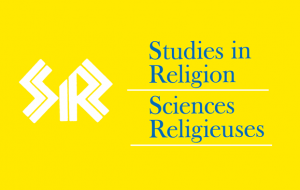Sylvana Al Baba Douaihy, Université de Sherbrooke
« La viabilité de l’état du Liban : Étude sur la gestion sectaire des loyautés religieuses extraterritoriales et la paix pluricommunautaire»
Dans la mesure où le Liban assiste à une profonde internationalisation de la vie politique interne qui se traduit par un effondrement du cloisonnement interne/externe, le concept des loyautés religieuses et des loyautés politiques extraterritoriales libanaises prend tout son sens. En inscrivant ma recherche dans ce contexte, je propose d’étudier le concept de loyauté à partir de son contenu et de la place qu’il occupe dans l’exercice du pouvoir de l’État libanais. Je soulève des interrogations qui portent sur l’ensemble des appartenances des communautés libanaises et identifie les conflits de loyautés qui en résultent. Mon but est de proposer un modèle de gestion d’un état où les religions sont plurielles et où l’enjeu du vivre ensemble est quotidien.
Roselle M. Gonsalves, University of Calgary
“What’s Goan on? The Importance of Religion in the Processes of Cultural Identity Construction in the Goan Catholic Coomunities of Mumbai, India, and Toronto, Canada”
“My doctoral research project argues that religious affiliation can be on par with ethnicity in the formation of cultural identity. In order to make this argument, this project focuses on the Goan Catholics of Mumbai, India—an ethno-religious minority group. By employing a multi-sited ethnographic methodology, my project is able to study the ways in which this community formulates its cultural identity in its native place of Mumbai, India, as well in the post-migration diaspora of Toronto, Canada. By assessing how Goan Catholics navigate their religious and cultural identities—both in their place of origin and in their new chosen country, this project actively contributes to the growing body of academic work on hybrid-identity creation, particularly in the Canadian multicultural context. By arguing that religious affiliation has a significant impact on the formation of cultural identity, this research is contributing to a broader understanding of culture as bound by neither geographic borders nor ethnic identity. This evolving understanding of what culture is, is socially relevant to the evolving Canadian understanding of multiculturalism, thus actively contributing to the research needs put forth
by the Government of Canada’s Policy Research Initiative on Cultural Diversity. »
Merin Shobhana Xavier, Laurier-Waterloo University
“The Bawa Muhaiyaddeen Fellowship in North America and Beyond”
Muhammad Raheem Bawa Muhaiyaddeen (d. 1986), a Tamil Muslim saint, migrated to Philadelphia, Pennsylvania from Sri Lanka in 1971. His teachings attracted a diverse ethnic and religious following and resulted in the formation of the Bawa Muhaiyaddeen Fellowship in Philadelphia. The Fellowship, which is based in Philadelphia with branches in Canada, Saudi Arabia and Sri Lanka, draw attention to various transnational intersections of a growing Sufi community. By tracing this movement from South Asia to North America my doctoral project aims to understand the global and local currents of embodied Sufism in the 21st century.

